World Cup final preview: Key questions, prediction for Argentina vs. France
Get ready for Sunday's World Cup final with theScore's comprehensive preview. Below, we examine the key questions and tactical battles that'll determine whether Argentina or France hoists the iconic trophy, along with a prediction for the showpiece match.
How to watch
- When: Sunday, Dec. 18 at 10:00 a.m. ET
- Where: Lusail Stadium (Qatar)
- Referee: Szymon Marciniak (Poland)
- TV: FOX, Telemundo, and Universo (U.S.), TSN and CTV (Canada)
- Stream: fuboTV (U.S.), TSN GO (Canada)
- Betting odds: Argentina +175; France +175
Projected lineups
Argentina (4-4-2): E. Martinez; Acuna, Otamendi, Romero, Molina; Mac Allister, Fernandez, Paredes, De Paul; Alvarez, Messi
France (4-3-3): Lloris; T. Hernandez, Upamecano, Varane, Kounde; Rabiot, Tchouameni, Griezmann; Mbappe, Giroud, Dembele
By the numbers
Comparing 2022 World Cup statistics for the tournament's two finalists.
| Argentina | France | |
|---|---|---|
| 4-1-1* | Record | 5-0-1 |
| 12 | Goals Scored | 13 |
| 5 | Goals Against | 5 |
| 11.8 | Expected Goals (xG) | 11.6 |
| 2.4 | xG Against | 6.7 |
*Argentina's shootout victory over the Netherlands in the quarterfinals, for FIFA's record-keeping purposes, is recorded as a draw.
Key questions
Which formation will Argentina use?
Lionel Messi, naturally, is getting nearly all of the attention leading up to Sunday's final. But an impending decision by his namesake, Argentina manager Lionel Scaloni, could end up being equally important as anything the Argentine captain does on the pitch. Perhaps more so?
Scaloni's biggest selection conundrum heading into the match revolves around Angel Di Maria. The winger, 34, has struggled with muscular ailments all tournament long, playing just nine minutes over the previous two rounds after limping out of the victory over Poland; he didn't feature in the semifinal triumph against Croatia. Training regularly ahead of the final, Di Maria's potential return to the starting lineup creates options for Scaloni.
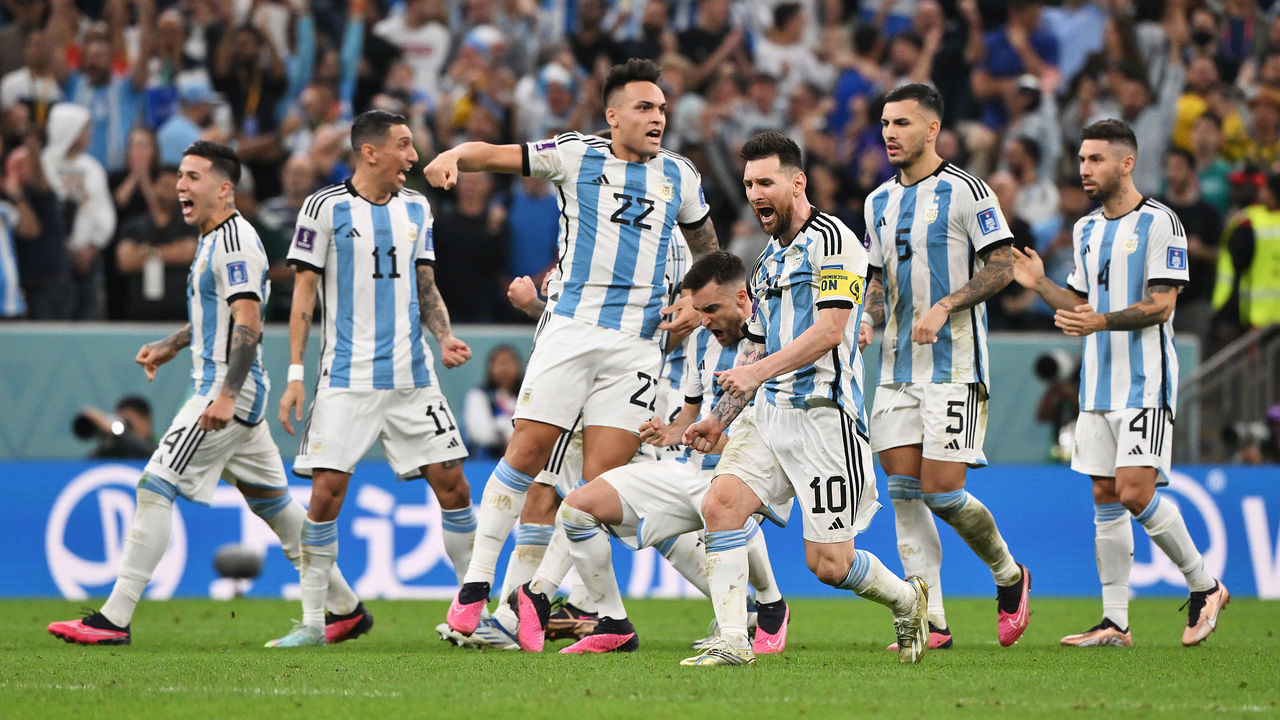
The ostensible 4-4-2 used to such great effect against Croatia - which operated more as a shape-shifting 4-3-3 with Alexis Mac Allister pushing up from the left side in support of Messi and Julian Alvarez - will likely be utilized again if Di Maria isn't capable of starting the contest. If he is, though, Argentina could return to a more traditional 4-3-3 setup, with the sinewy veteran - on the right side - and Alvarez flanking a roaming Messi, who can play through the middle and drop deep to pick up the ball and orchestrate. Alvarez, then, could stay high on the left wing, as Jules Kounde, a makeshift right-back for France, will very rarely vacate his defensive position.
Who comes out of midfield, though? Mac Allister has provided graft and guile throughout the tournament, while the on-ball composure of Leandro Paredes was vital against Croatia. Enzo Fernandez and Rodrigo De Paul are assured of their starting places, so Mac Allister or Paredes would need to make way for Di Maria. The risk of burning an early sub if he needs to come off prematurely can't be ignored, though the five-substitute era lessens that concern to a degree. Formations, for the most part, can be overblown. These things are all fluid. But personnel decisions are magnified in big matches, and there are none bigger than the World Cup final. Scaloni has a big call to make.
Will France be at full strength?
An ill-timed virus has ripped through Didier Deschamps' France squad, with Raphael Varane, Ibrahima Konate, and Kingsley Coman all missing training on Friday. Adrien Rabiot and Dayot Upamecano, two pillars of the side in Qatar, were unavailable for the semifinal due to the same illness. Rabiot, in particular, has been a monstrous presence in midfield.
"We are trying to take as many precautions as possible, to adapt as necessary and get on with it," Deschamps said on the eve of the match, while noting that everyone trained on Saturday. "Obviously, it would be better if this wasn't happening, but we are handling it as well as possible with our medical staff."
All of them could play on Sunday. None could be available. Some combination could feature. Much remains up in the air. In a way, it's a fitting end to the tournament for the reigning champion, which has been beset by a series of significant injuries that would have rocked any other team to its core.
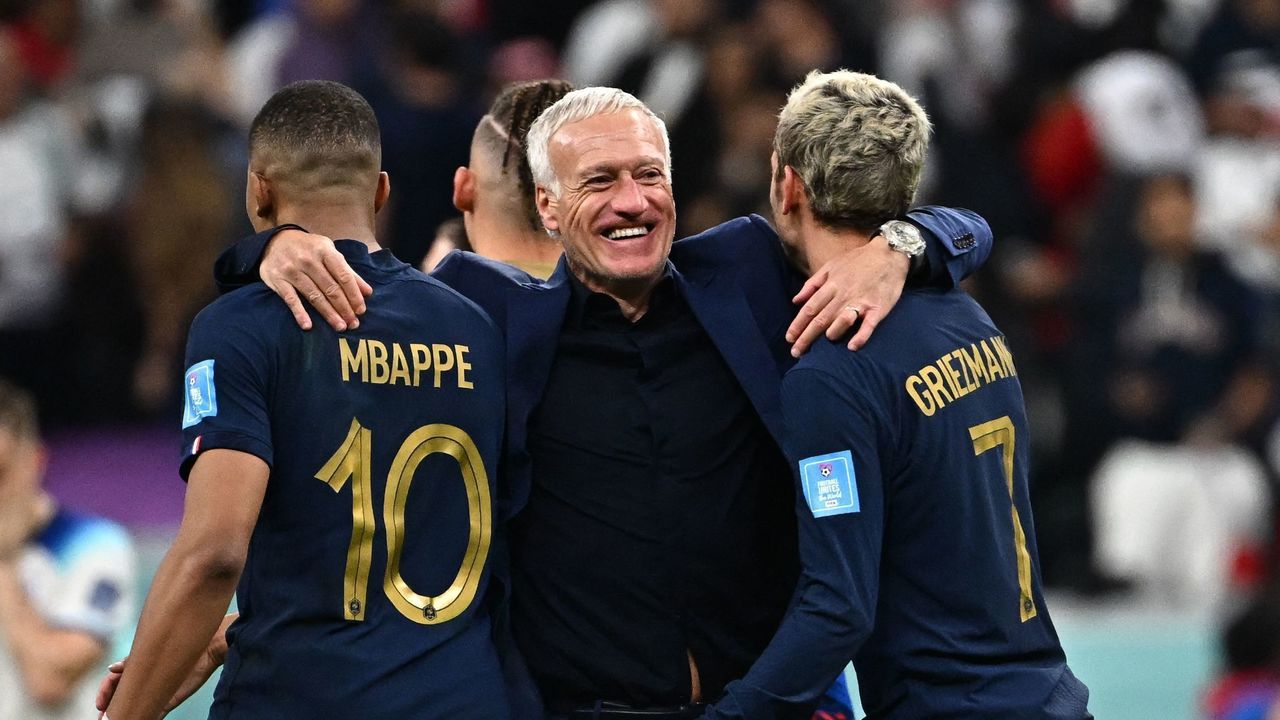
That, in part, is why it's so difficult to levy any genuine criticism at Deschamps for France's paradoxical approach. Les Bleus, by design, still haven't hit top gear, allowing each match to come to them and then pouncing when the opportunity arises. And they're still winning, even if the margins are becoming ever slimmer in the knockout stage. There's a certain haughtiness that comes with never needing to be at your incandescent best and still succeeding. At this point, you have to respect it. France's obscene collection of talent has justified that approach. Losing Karim Benzema - the reigning Ballon d'Or holder - N'Golo Kante, Paul Pogba, Christopher Nkunku, Lucas Hernandez, and Presnel Kimpembe, among others, would be a death knell for any other team. France just keeps motoring along. The football itself has been reactive - especially against England and Morocco, where that passivity was nearly costly - but at this point, it's a winning formula. How you win doesn't go into the record books, ultimately. Just that you win.
Regardless of who plays on Sunday, France will use its trusted approach as it looks to enter dynastic territory by becoming the first nation in 60 years to win consecutive World Cup titles.
Is this Messi's crowning moment?
It's perhaps a little too crude to say this Argentine squad is Messi and 25 other players; this isn't exactly 2014, when the diminutive magician dragged an unbalanced and largely underwhelming team to within a whisker of the title before Mario Gotze scored that goal. This version of the Albiceleste is significantly better. Alvarez, full of energy and verve, ripped away the starting spot up front and - quite literally, against Croatia - ran with it. Fernandez has announced himself to the world over the past month. De Paul and Nahuel Molina have shaken off a scrappy season with Atletico Madrid to thrive in Qatar. Emiliano Martinez, one of the vocal leaders of Scaloni's team, provides backbone and swagger. Argentina is very good. This team didn't go 36 matches unbeaten coming into the tournament for nothing.
And yet, on a simpler level, this really is Messi and 25 other dudes. It's impossible to ignore the narrative drama of it all. Aside from all the tactics, lineup decisions, and individual battles, that's what this sport, and especially this match - the biggest one of all - can deliver.
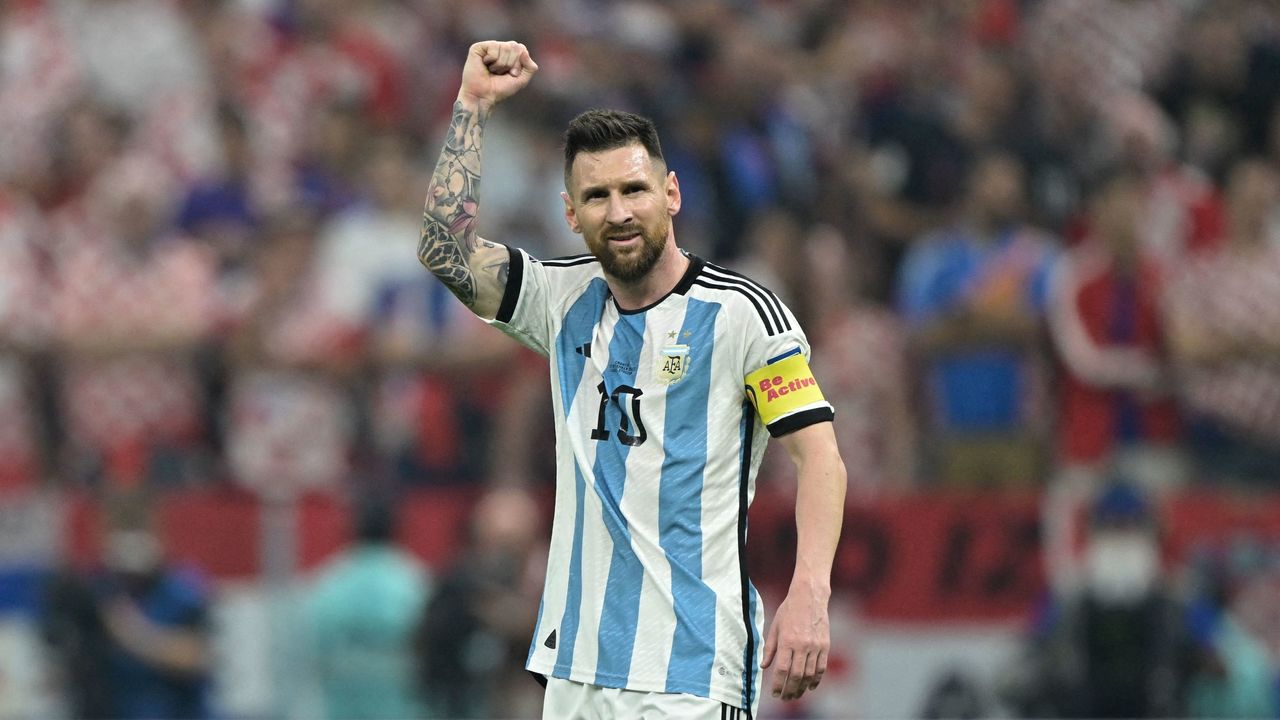
The only title to ever elude Messi's grasp is, once again, one victory away. At 35 years old, this is his final chance to hoist the World Cup and, whatever you think about the exhausting GOAT debate, put a stake through it for good. Messi may have more help than ever before on the international stage, but he's still leading Argentina in more ways than one. He's the joint-leading scorer in Qatar - level with Kylian Mbappe on five goals - and nobody has more assists, either. Two of those helpers were more spellbinding than any goal that's been scored in the tournament thus far.
Messi, more than any other player - perhaps in history - can feel the game. He can see things others only recognize after they happen; for opposing defenders, after it's too late. Take his assist against the Netherlands, for example. If he can conjure up one more breathtaking moment and lead his country to its first World Cup title since 1986 - something much of the world outside of France (and maybe Brazil) is willing him toward - the already rarified air he breathes will reach another level. He won't have to share it with anyone.
Can Mbappe rip the baton away?
Four years ago in Russia, Mbappe's career took a gigantic leap forward - at Messi's expense, no less. Then 19, Mbappe transformed from burgeoning teenager to full-blown superstar when, in the manic 4-3 win over Argentina in the round of 16, he scored twice and created another goal with a searing, scintillating 70-yard run that no other player on earth could dream of replicating. You could sense the changing of the guard was slowly beginning.
Messi, to his immense credit, has made his Paris Saint-Germain teammate wait longer than expected to assume the mantle exclusively. But, this being Messi's final World Cup, that moment is coming. Father Time never loses. The tournament in Qatar, also the last for Cristiano Ronaldo, will signal a passing of the baton after nearly two decades of the Messi-Ronaldo duopoly.
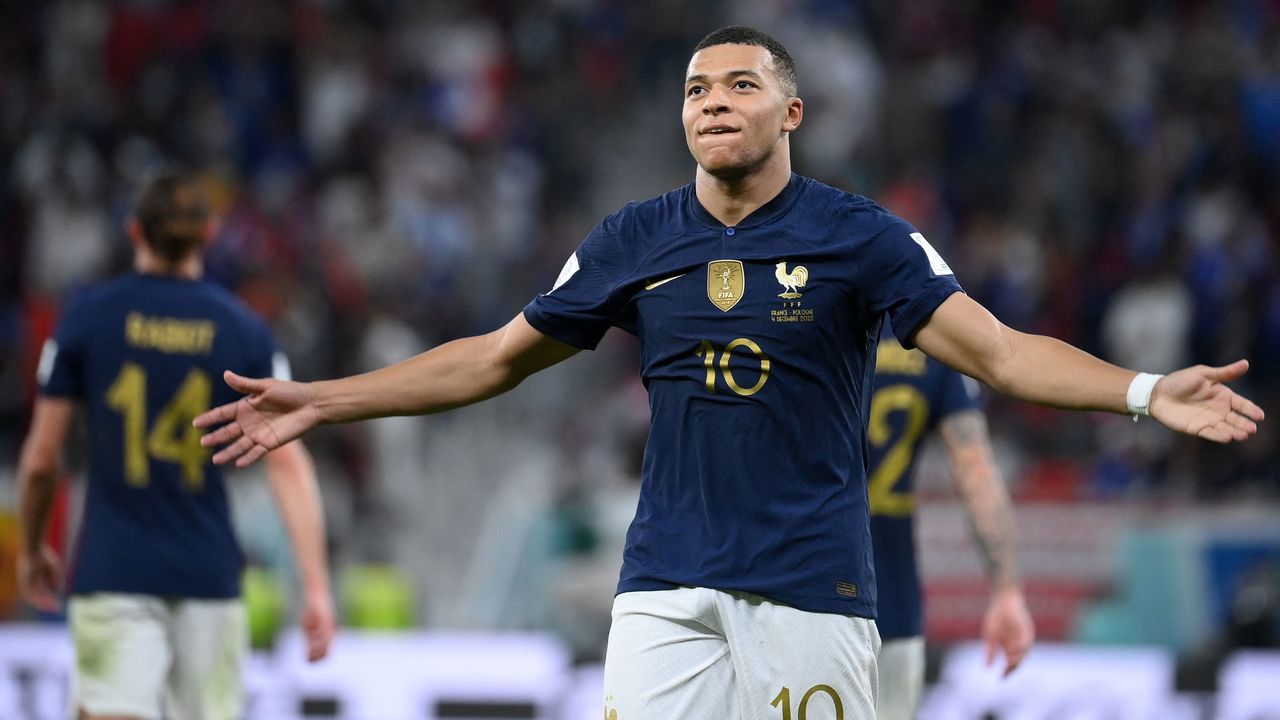
Mbappe has a legitimate chance at obliterating every record set by his illustrious predecessors. Winning a second World Cup at 23 years old - he turns 24 next week - would accelerate that process. He already has nine World Cup goals; more than both Portugal's Ronaldo and Diego Maradona. All five of his efforts in Qatar have come from open play, too. He's a singular attacking force of nature. Overall for club and country, Mbappe's found the net 250 times in just 362 matches. Absurd. He's a cheat code.
"It's difficult to see the limit for Kylian," French captain Hugo Lloris said of his explosive compatriot. "He's capable of breaking all records. It's amazing to have a teammate like him."
He's right. Barring injury, there is truly no limit to what Mbappe can achieve.
Battles to watch
Mbappe vs. Molina: In the previous two rounds, England and Morocco took different approaches to try and stymie Mbappe. The Three Lions asked Kyle Walker to forgo his attacking duties, sit deep, and shadow Mbappe so he couldn't get out into open space. The Atlas Lions, meanwhile, allowed Achraf Hakimi more freedom to get forward, with Sofyan Amrabat sliding over to marshal Mbappe. Each plan worked, to a certain extent. Until it didn't. Walker ventured up once in the first half against France, and Mbappe helped deliver the opening goal of the match at that moment. Against Morocco, he played a role in both French goals, including creating the insurance tally with some dazzling footwork inside the area while surrounded by a handful of defenders. Your turn, Argentina. Molina isn't as quick as Walker or Hakimi - few are, in truth - so tasking him alone with tracking Mbappe's blistering runs isn't a recipe for success. The Argentine is also an important outlet in the attack, as outlined by his goal against the Netherlands. Cristian Romero, Argentina's most athletic defender who excels at eating up open space, is likely going to be very busy on Sunday.
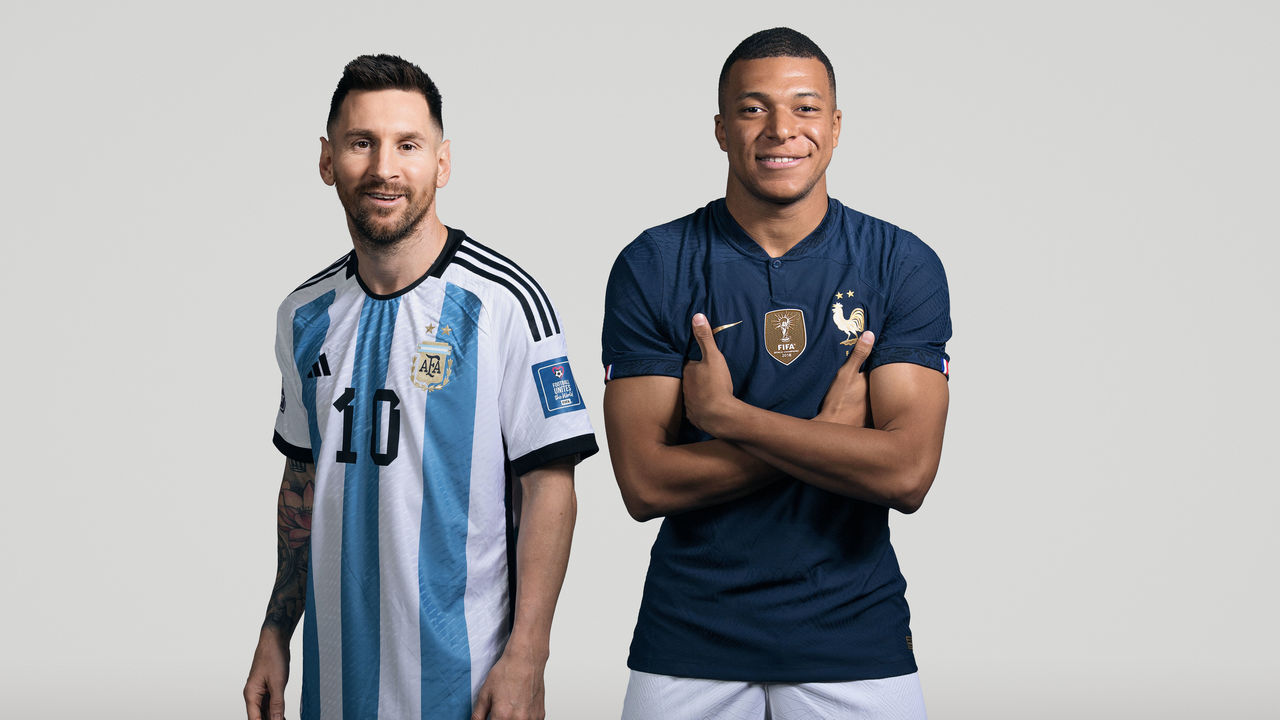
Messi vs. Hernandez: In an emotional sense, this final is, understandably, being billed as Messi vs. Mbappe. As outlined above, another title for the Frenchman and all bets are off in the inevitable GOAT conversations that will be had by future generations. But Mbappe himself won't be alone in determining what the oral histories say about his career. Theo Hernandez will have an outsize role in that discussion, at least as it relates to Sunday's game. The rampaging left-back, who scored the eventual winner in the semifinal against Morocco, will have the primary task of slowing down Messi, who occupies and thrives in the spaces that Mbappe vacates defensively. Deschamps allows his star attacker to float up high, asking him to do little defensive work - bordering on none - to help facilitate the types of counterattacks that make France so devastating. The brunt of the responsibility, then, will fall on Hernandez, who himself can be rash defensively, as he's shown in this competition already. An 18-wheeler barreling down a hill when he's trucking forward with a full head of steam, Hernandez isn't as impressive going in the other direction. How he deals with Messi, and how France's midfielders shift over to that side of the pitch to help him, will go a long way to determining who lifts the trophy at Lusail Stadium.
Griezmann vs. Fernandez: Arguably the two most important players for each team - in the non-Messi and Mbappe divisions, of course. X-factors, as it were. Antoine Griezmann's reinvention as a central midfielder has been one of the great revelations of the tournament. The one-time forward has been the creative fulcrum for Les Bleus; no player has crafted more scoring chances for his teammates over the past month in Qatar. Fernandez, meanwhile, has quickly established himself as the beating heart of Argentina's midfield, both on the ball and off it. He's feisty and combative, capable of disrupting the opposition with a well-timed tackle or interception. He can also cut them open with a perfect pass or incisive run into the channel. As he showed with his sumptuous curling strike against Mexico, the 21-year-old knows where the net is, too. With France likely ceding possession and looking to strike quickly on the break, Fernandez will be at the center of everything for Argentina on Sunday, both in the attacking and defensive phases.
Prediction: Argentina wins 1-0 in normal time